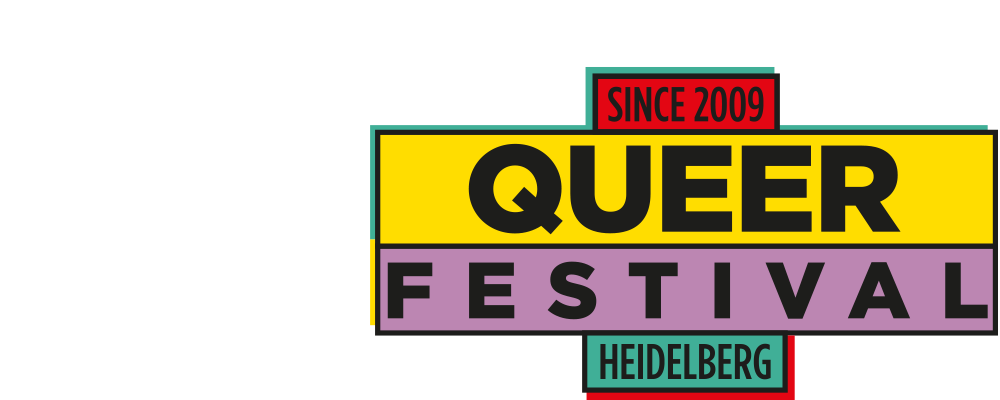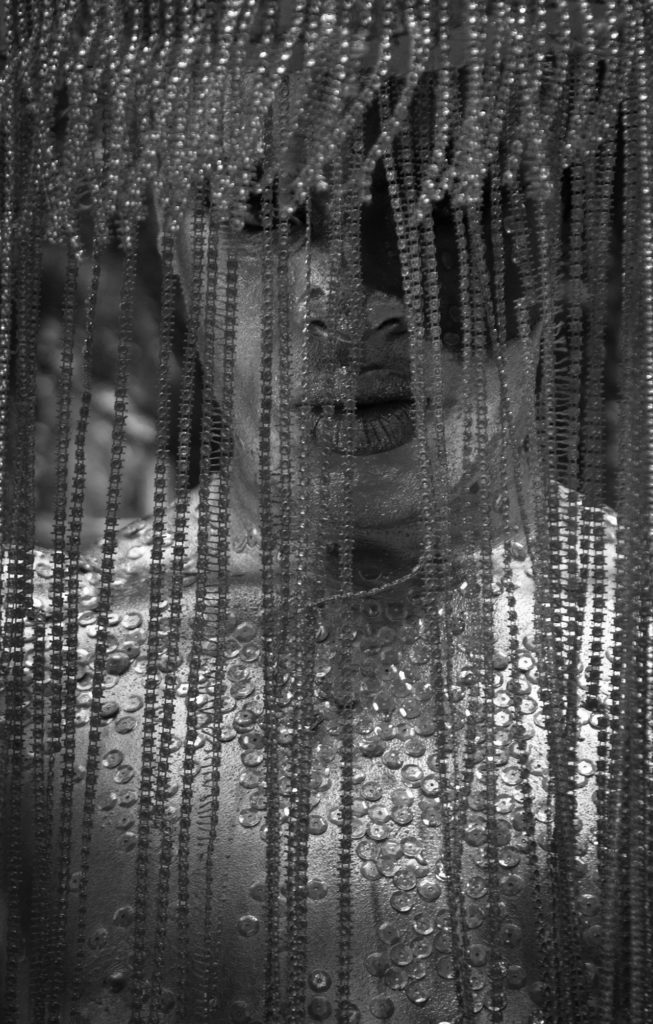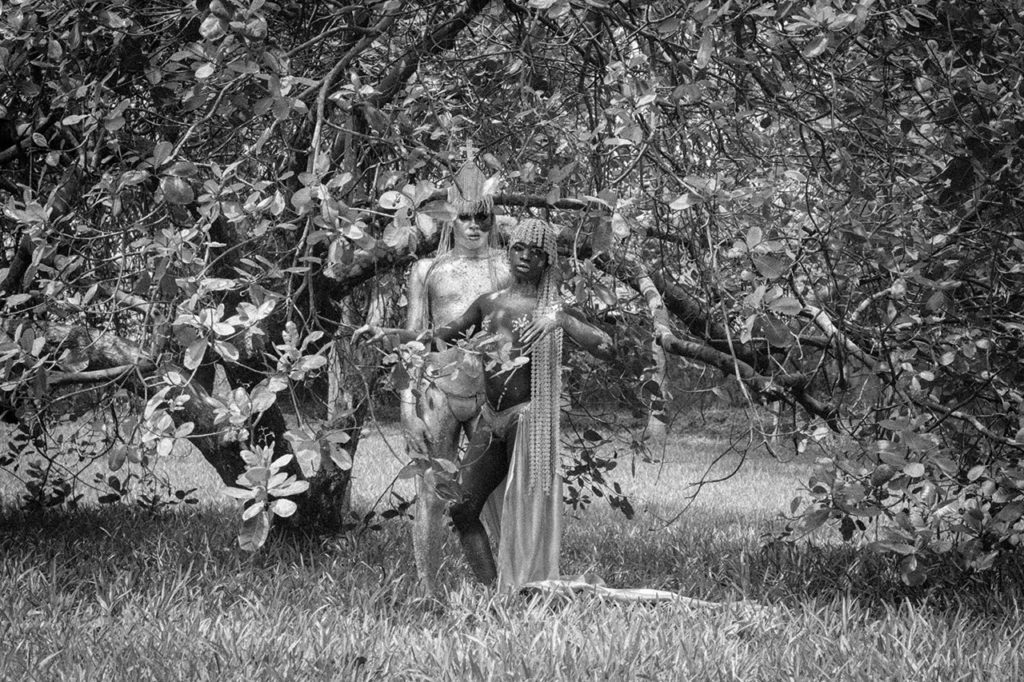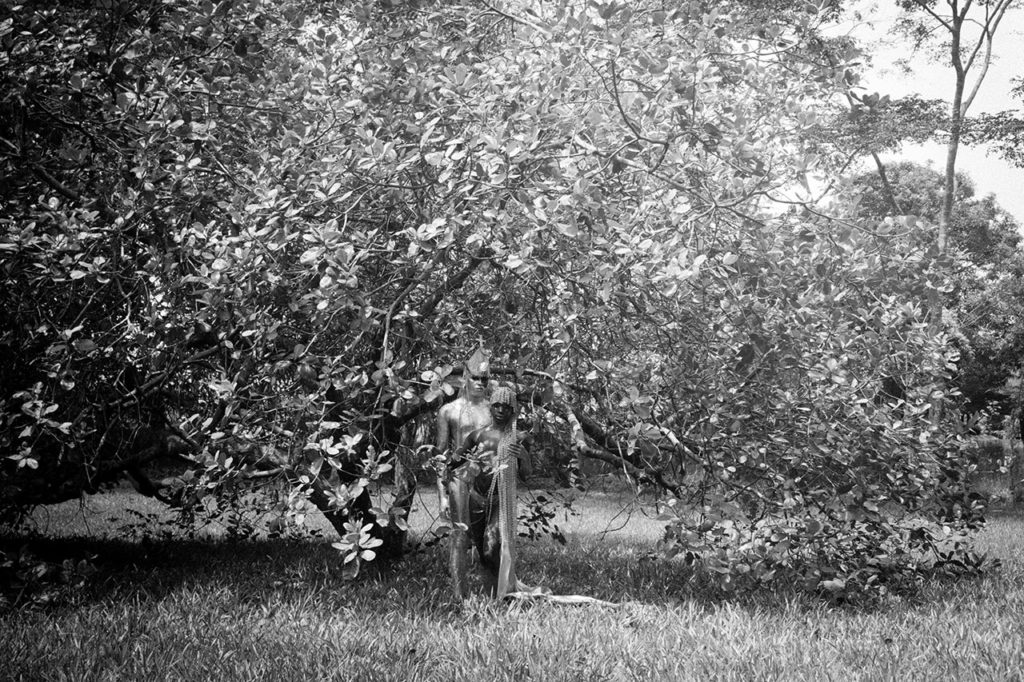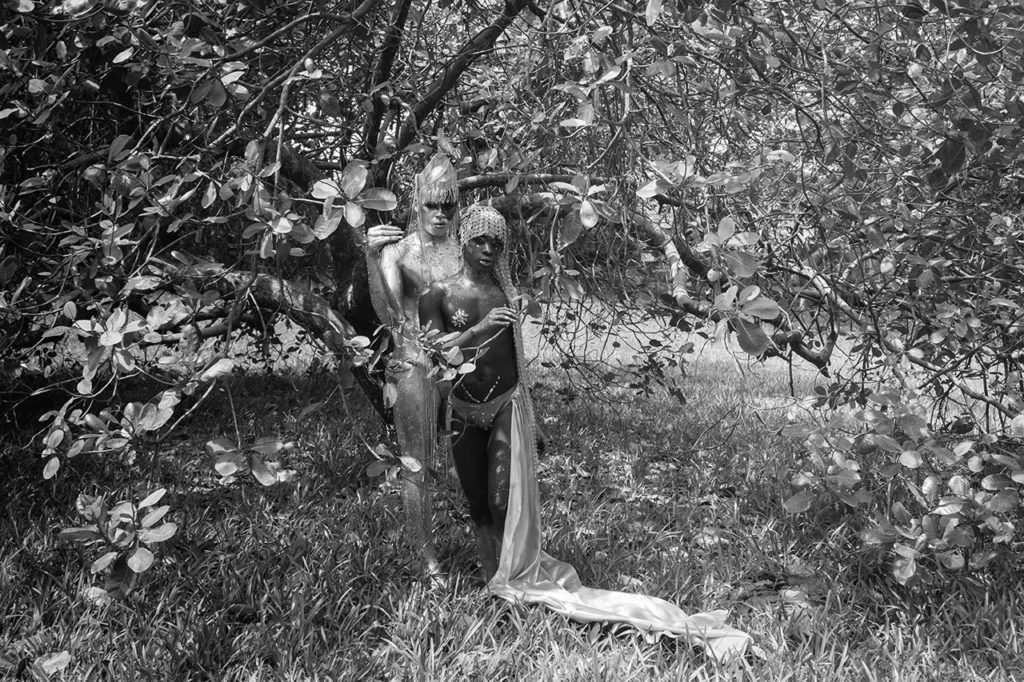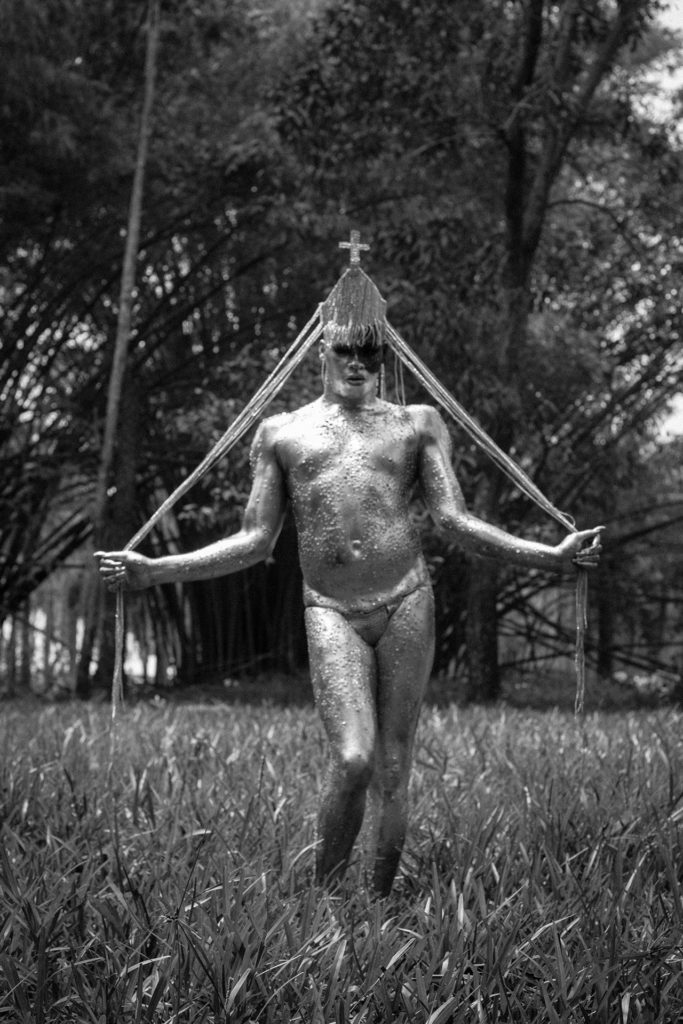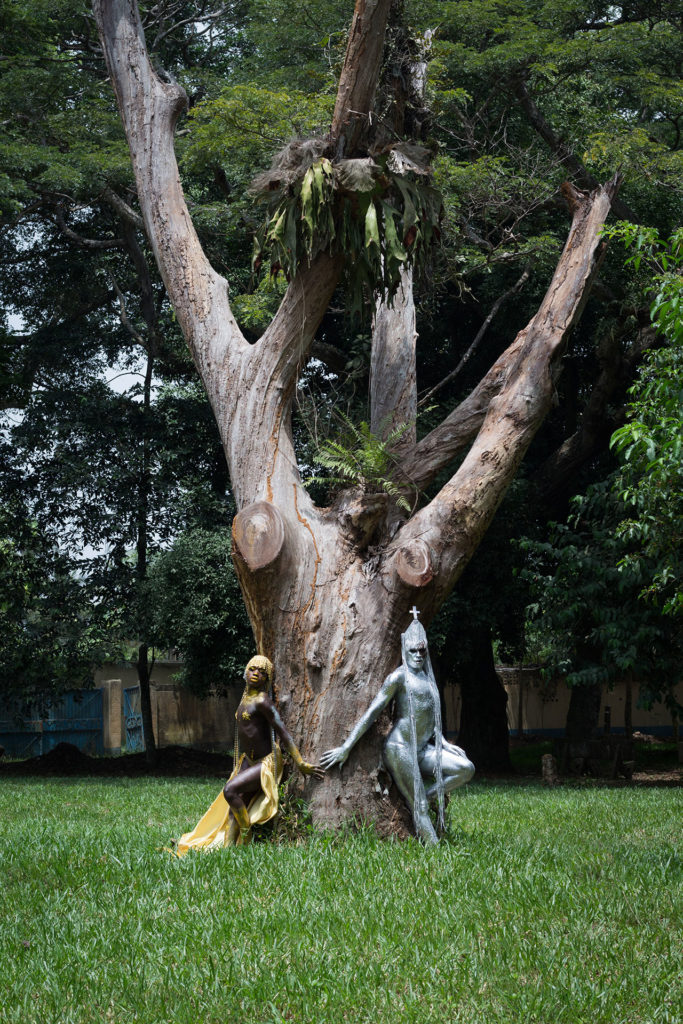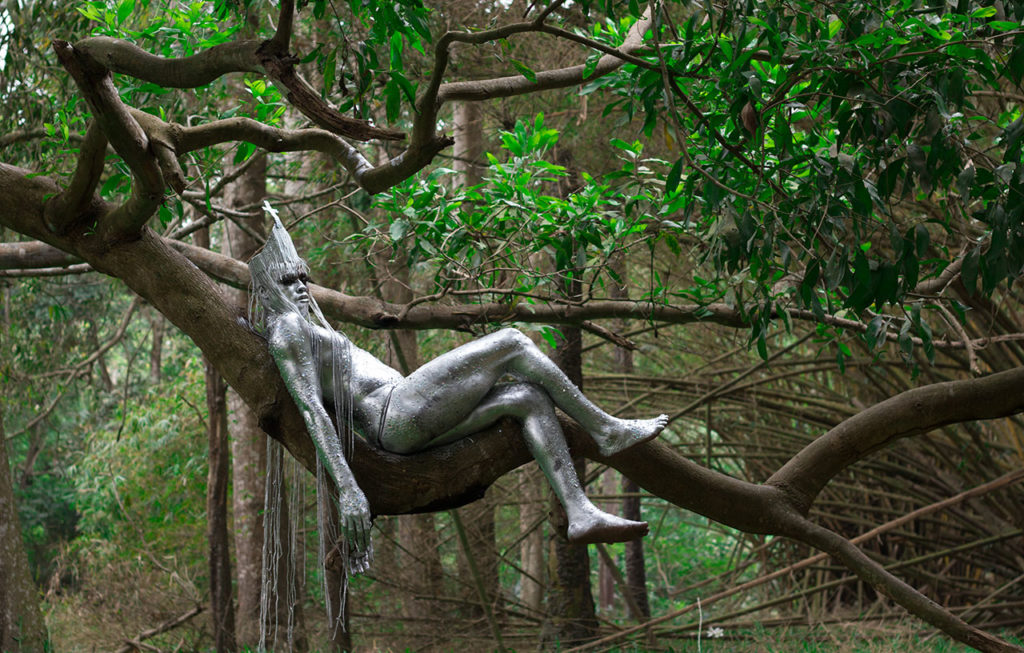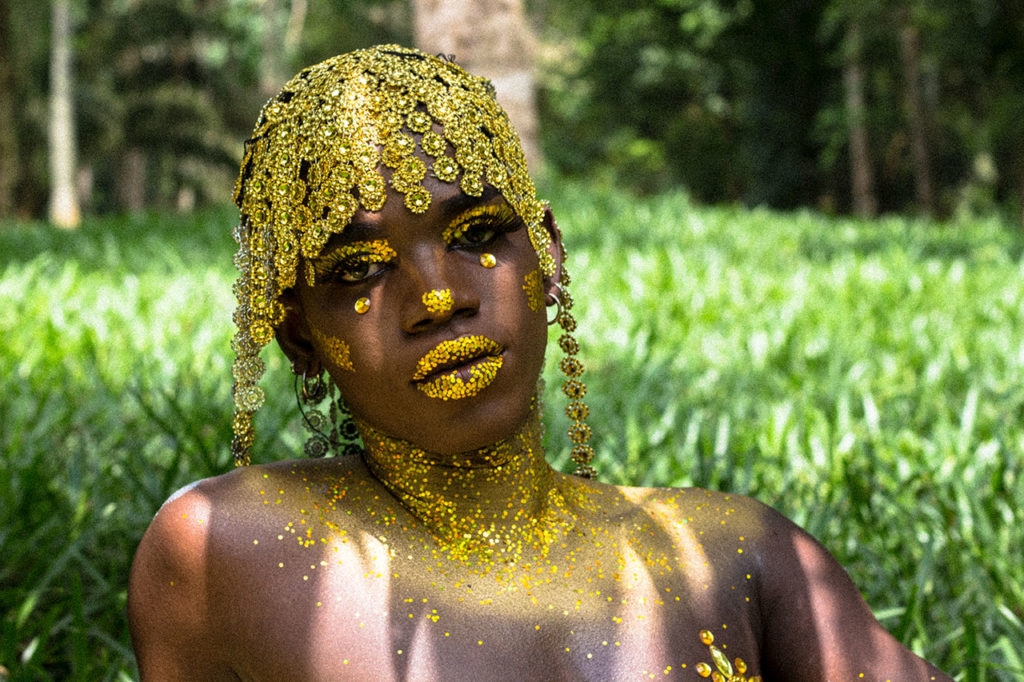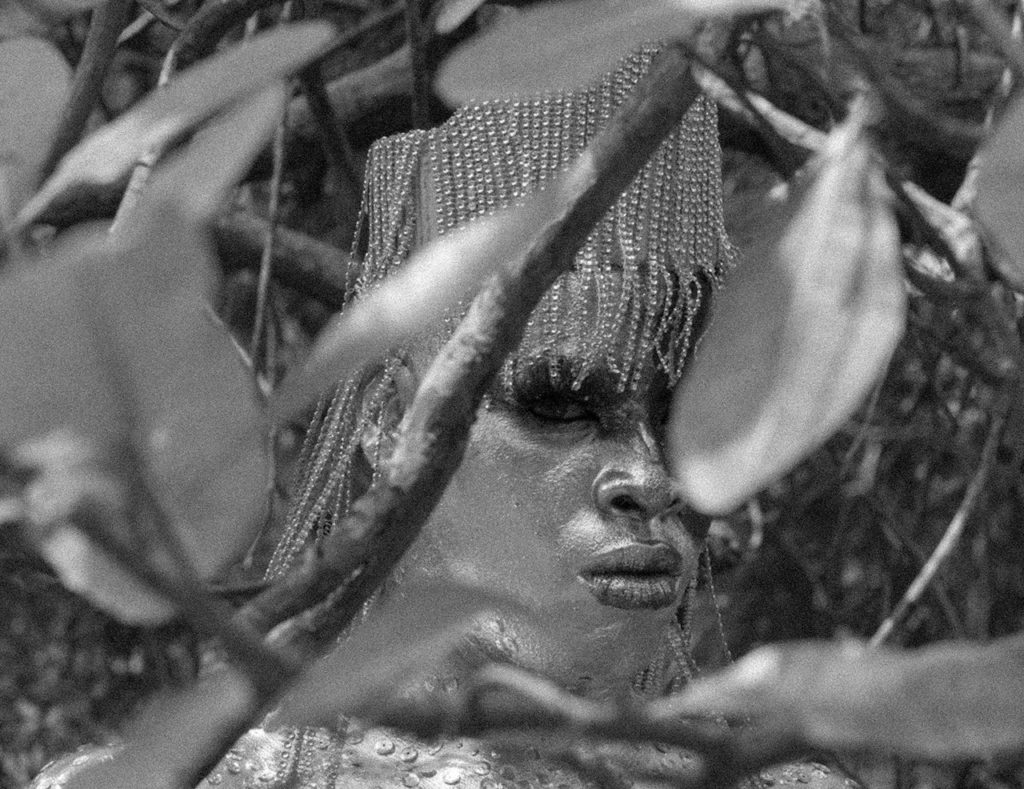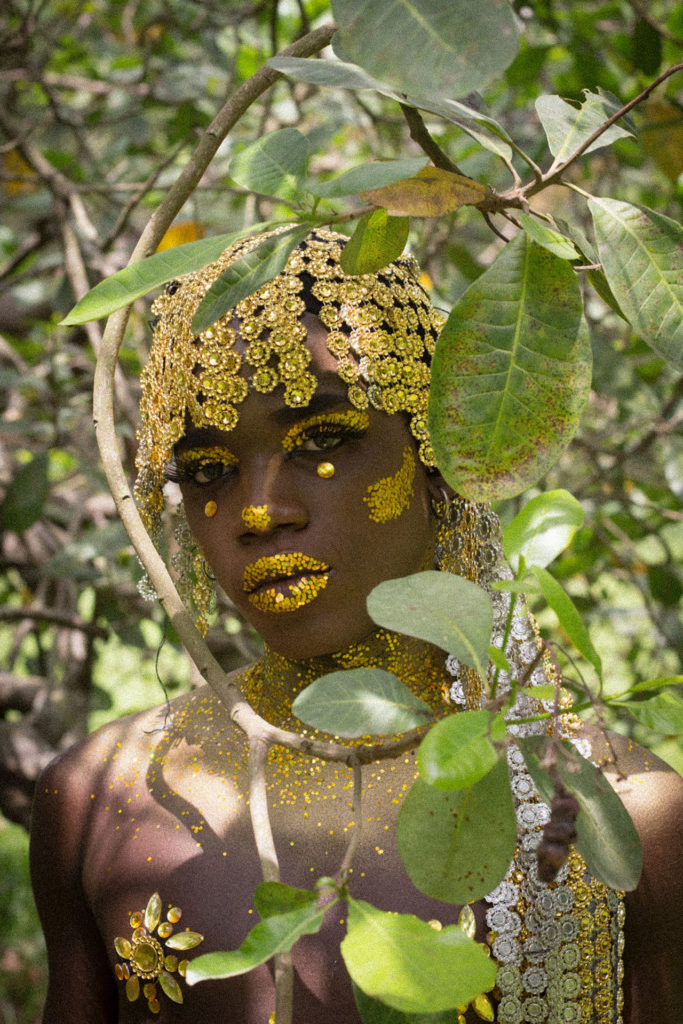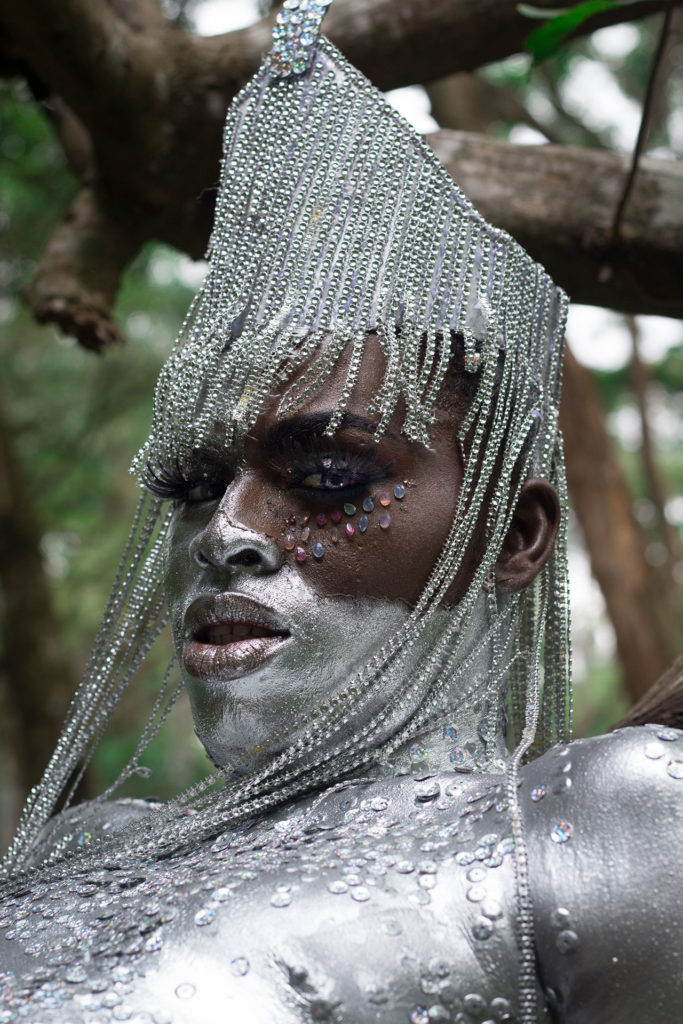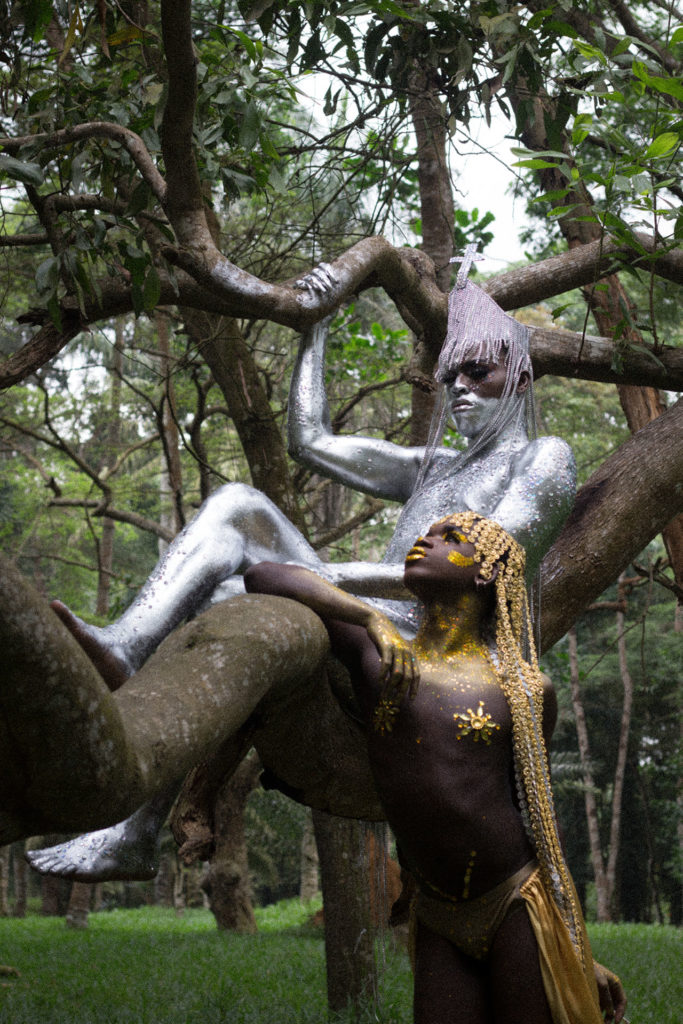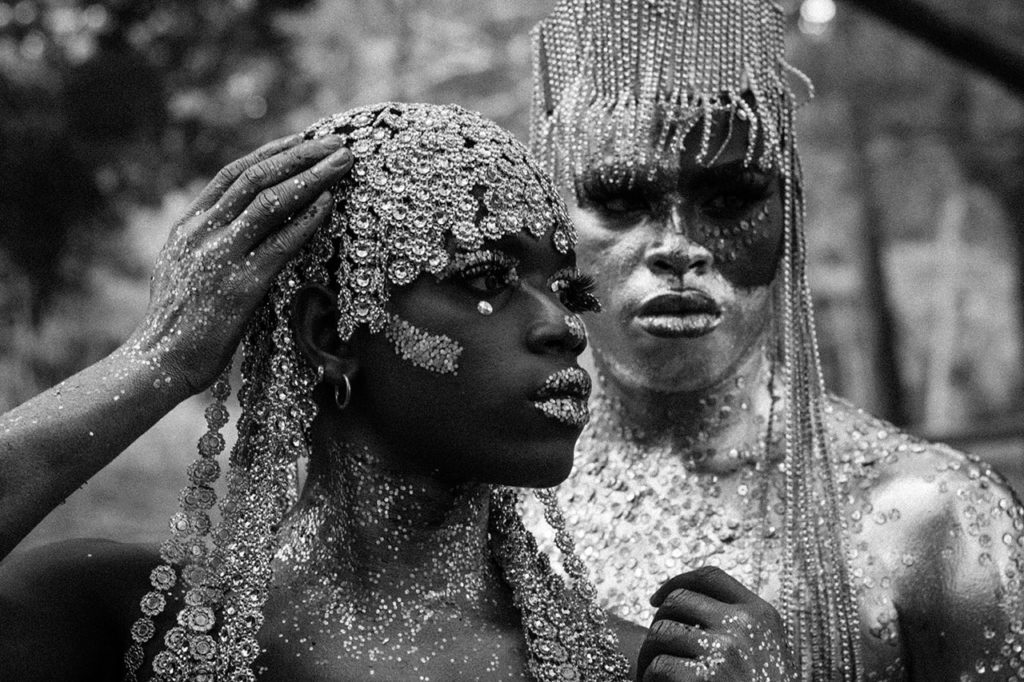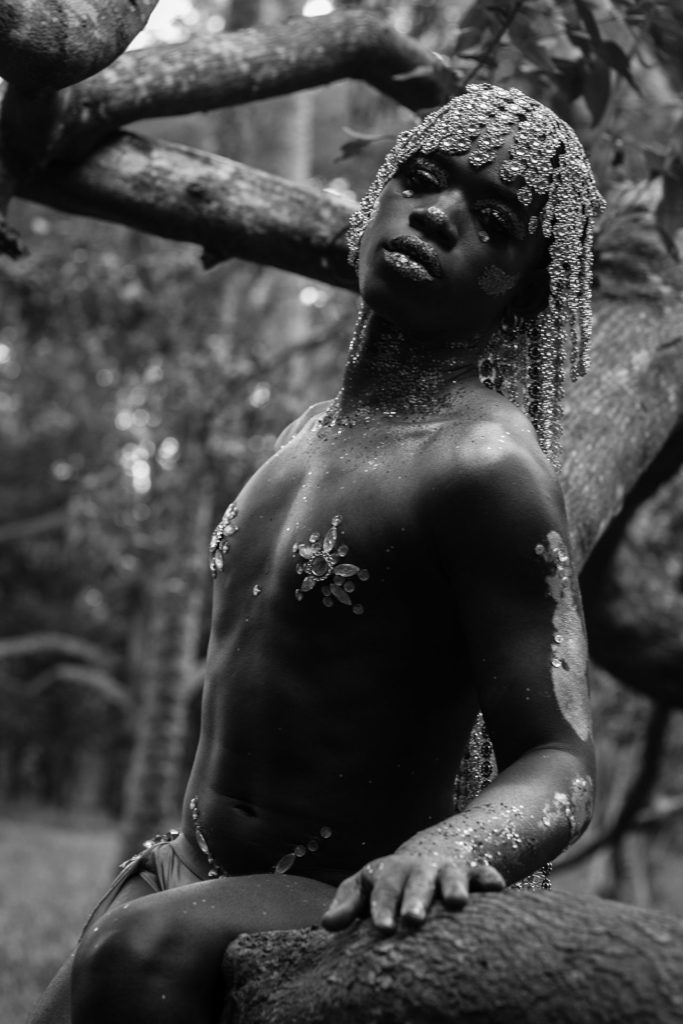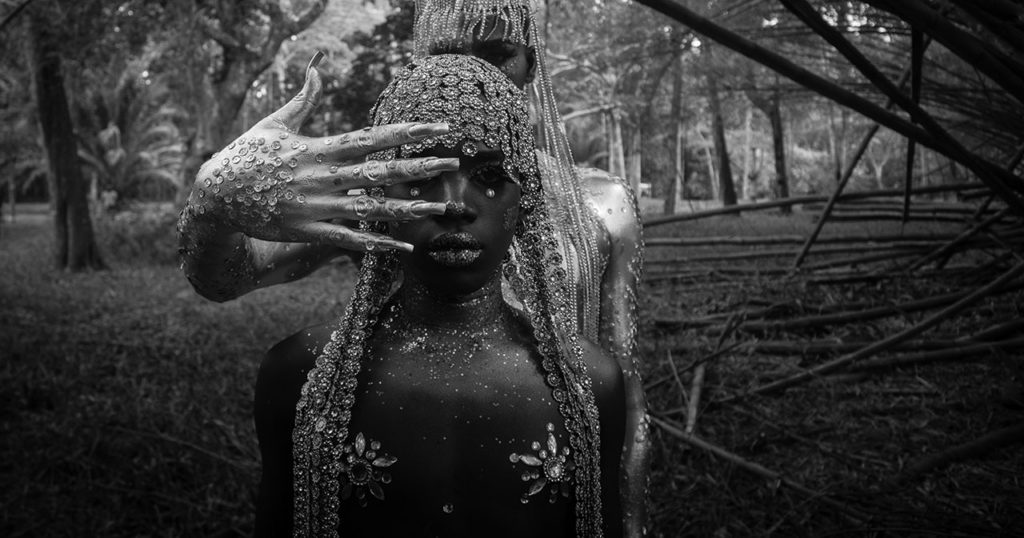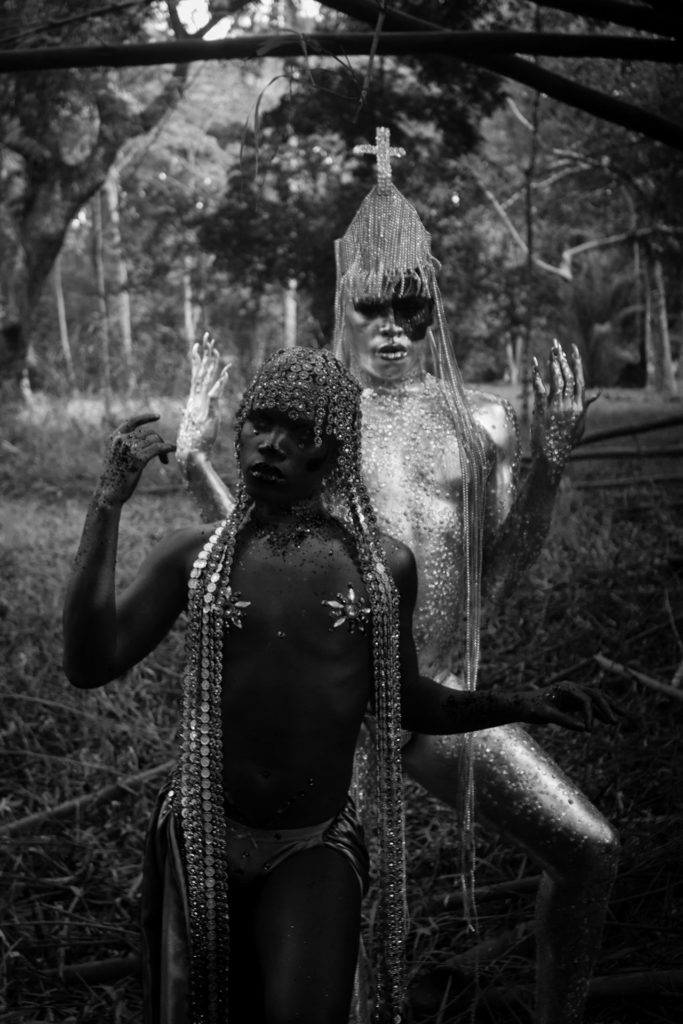Ngadi Smart –
The Queens of Babi
Audio Guide read by Frederik Busch
Ngadi Smart (Côte d’Ivoire/UK)
is based in Côte d’Ivoire and London. She holds a bachelor of design from Ontario College of Art and Design and a diploma in art and design from the Somerset College of Art & Design Technology. She also i the founder of “The EyeMuse Project”, a global Illustration and Photography project. Her work has been exhibited internationally in Nepal, China, Ghana, Nigeria Côte d’Ivoire, U.S.A, United Kingdom, and Germany.
Ngadi Smart writes about herself
I am a Sierra Leonean Photographer based in Côte d’Ivoire and London, U.K whose focus is on Culture, Subcultures and Intimacy. My photographic work has long been focused on how people self-identify and choose to present themselves in front of the lens. As of late, my interest has been documenting Black sensuality through an African lens and point of view. I aim to show as many representations of African people, and what it means to be African, as I can.
Ngadi writes about The Queens of Babi
“The Queens of Babi” was created after meeting and talking with the members of Abidjan’s drag community, and discussing how to highlight their talent and creative passions. For a duration of two years, until 2018, members of the drag community in Abidjan would meet discreetly in an undisclosed bar to attend drag themed events. They would parade and show off their finest creations to each other and the members of a jury. A winner would be picked at the end of each event. I chose to highlight the only two winners of these competitions, as after talking to them, their personalities just stood out to me. I worked with Kesse Ane Assande Elvis Presley, or simply coined as „Britney Spears“ by her friends, along with Mohamed, aka “Baba”.
The Outfits you see were made fittingly under the theme of royalty. All creations were imagined by Britney and Baba and crafted from scratch, which was amazing to watch as I received their photo and video updates.
Both have ambitions that reach beyond drag. Britney wants to be a model and an actress, be an international drag queen, have her own life and freedom to do what she wants, and most importantly, be proud of the life she leads. Baba would like to own a fashion company, start a family and work in the entertainment industry. Regular desires, that would normally be attainable to any person whose gender and identity would be deemed “acceptable” to carry these out within society’s confines. Both are also aware of the difficulties of work such as this in Côte d’Ivoire – from the costs, to finding a tailor who would agree to work on their outfits, and premises that would host without fear of backlash. All these remarks sadly point to the elephant in the room: The culture of drag and LGBTQ identity is still not as readily accepted within the confines of modern African society.
The Jury Statement
Ngadi Smart’s series “Queens of Babi” oscillates between authentic documentation and high-gloss fashion editorial. Instead of frequently seen club, bar, ballroom, or street-settings, Ngadi Smart portraits her collaborators as the Queens of a peaceful outdoor scenery. They reign casually and almost merge with the surroundings, would there not be rhinestones, gold, silver and their radiant beauty. The iconic quality of these images clearly transports Britney and Baba ́s definition of drag. Their royal fierceness reminds us that drag is not a tv-show; it is a queer cultural practice inherent to our communities on all continents.
